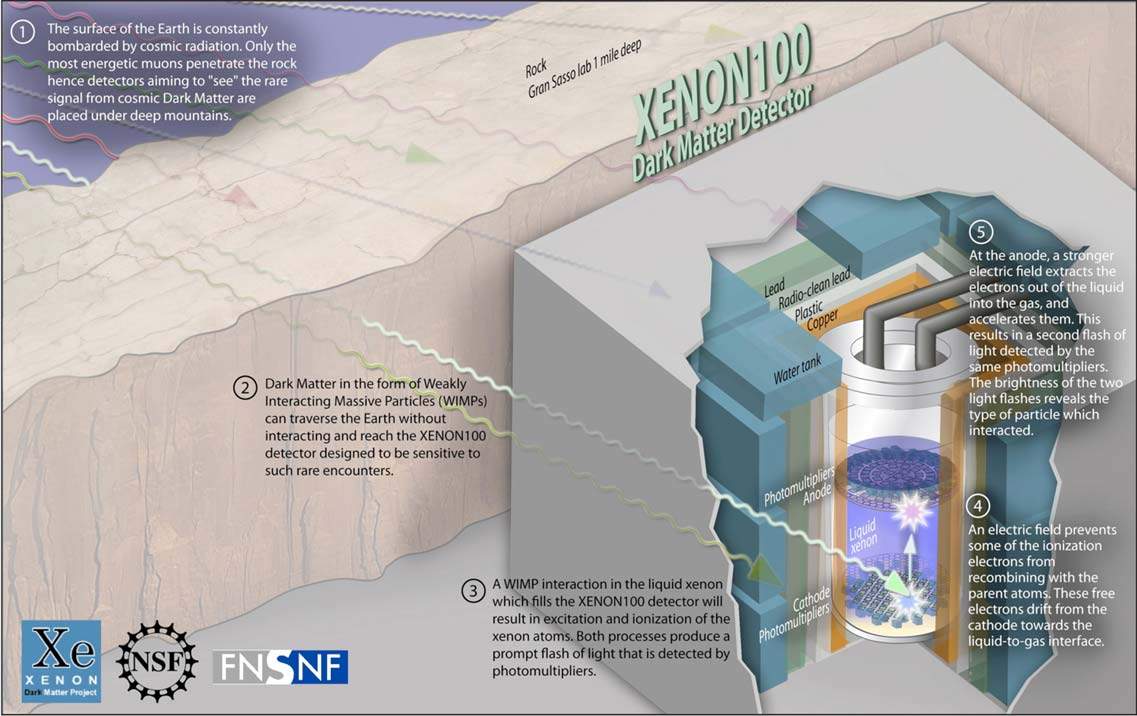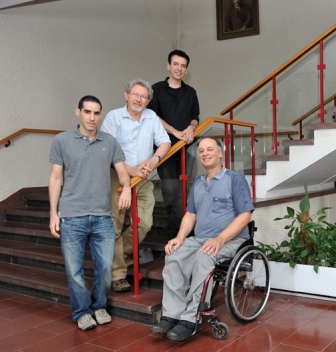The existence of particles known as WIMPs is still up in the air. The WIMP, or Weakly Interacting Massive Particle, is one candidate for the mysterious dark matter thought to make up much of our universe. Such a particle would hardly ever interact with regular, everyday matter and thus should be extremely hard to detect.
Weizmann Institute scientists have been participating in an experiment to look for traces of WIMPs. The experiment consists of 161 kilos of liquid xenon buried deep underground in Italy’s Gran Sasso National Lab. Besides the 1400 meters of rock, layers of copper, water, lead and polyethylene shield the experiment from cosmic and background radiation, so that any rare WIMP signals can be recorded. Working with 60 physicists from around the globe, Profs.
Eilam Gross,
Ehud Duchovni and
Amos Breskin of the Institute’s Particle Physics and Astrophysics Department were instrumental in increasing both the search sensitivity of the experiment and the possibility of discovering the particles.
After 100 days of operation, three candidate events were recorded, but these could well have been rare background radiation events within the xenon tank. Because XENON100 was the most sensitive of the WIMP searches conducted in various labs around the world, it has narrowed the possible range for this particle. Now the scientists are working on a new version of the detector that will contain 1000 kilos of liquid xenon and be a hundred times more sensitive.
Prof. Amos Breskin's research is supported by the Nella and Leon Benoziyo Center for High Energy Physics; and the estate of Richard Kronstein. Prof. Breskin is the incumbent of the Walter P. Reuther Chair of Research in Peaceful Uses of Atomic Energy.
Prof. Ehud Duchovni's research is supported by the Nella and Leon Benoziyo Center for High Energy Physics; and the Yeda-Sela Center for Basic Research.
Prof. Eilam Gross's research is supported by the estate of Richard Kronstein.

